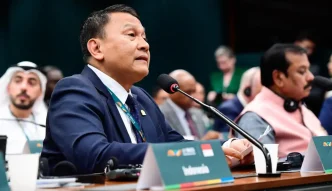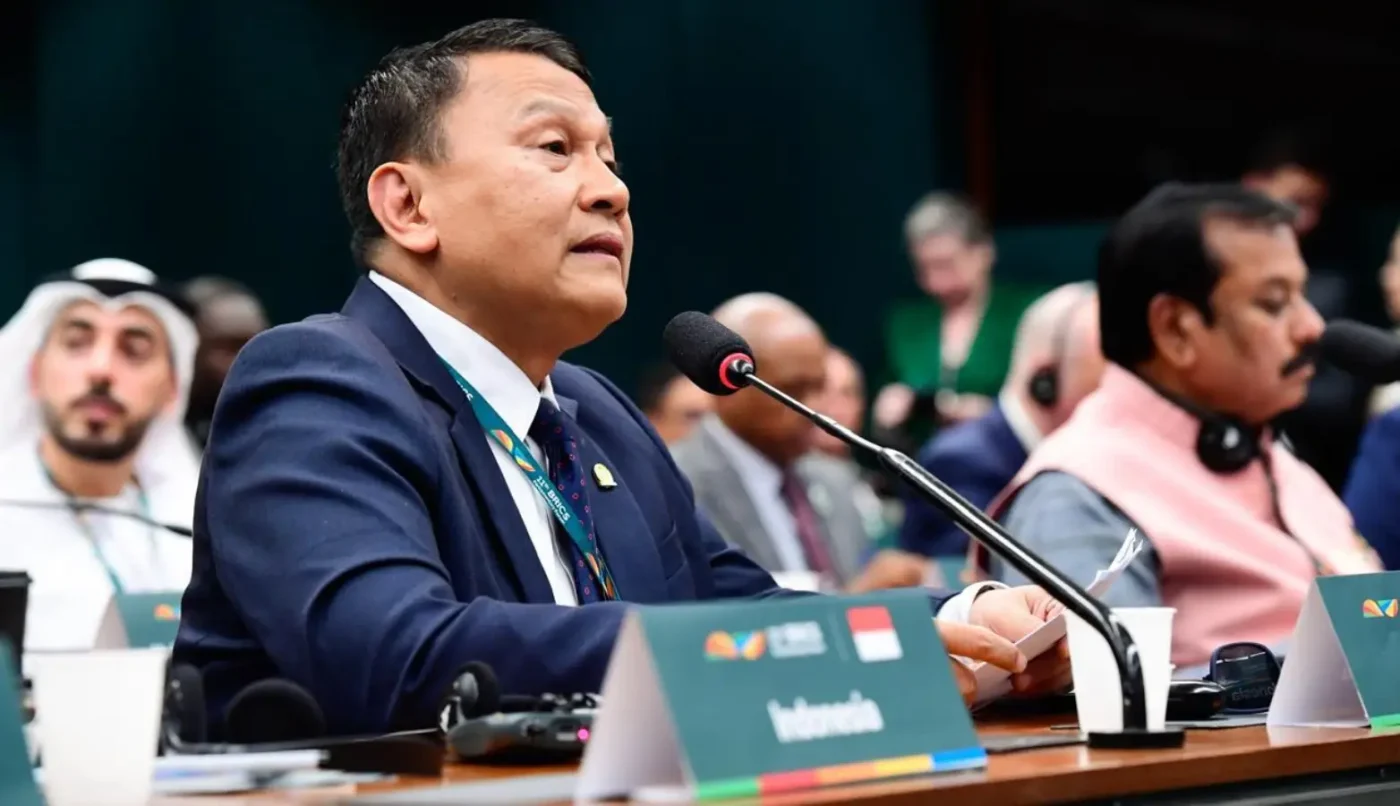Indonesia, Southeast Asia’s largest economy, has received a significant nod on the global stage as Canadian Prime Minister Mark Carney extended an invitation to President Prabowo Subianto to attend the upcoming G7 Summit. This gesture, announced during a bilateral meeting in Jakarta, underscores Indonesia’s growing geopolitical and economic relevance amid complex domestic challenges, including worsening air quality in Greater Jakarta and debates over economic diplomacy. As the nation navigates its role in international forums, questions linger about how it will balance global expectations with pressing internal issues.
A Seat at the G7 Table
The invitation to the G7 Summit, a forum of the world’s leading industrialized nations, marks a pivotal moment for Indonesia, which is not a traditional member of the group. The G7—comprising Canada, France, Germany, Italy, Japan, the United Kingdom, and the United States—often invites guest nations to address global challenges such as climate change, economic inequality, and geopolitical tensions. President Prabowo’s inclusion signals recognition of Indonesia’s strategic importance as a key player in the Indo-Pacific region and a leader within the Association of Southeast Asian Nations (ASEAN).
During the announcement, Prime Minister Carney highlighted Indonesia’s potential to contribute to discussions on sustainable development and regional stability. “Indonesia’s perspective is vital as we tackle shared challenges” said Carney, emphasizing the country’s role as a bridge between developing and developed economies. The invitation also comes at a time when Indonesia is pushing for greater representation of the Global South in international decision-making bodies, a stance Prabowo has championed since taking office.
Analysts view this as a diplomatic win for Prabowo, who has prioritized elevating Indonesia’s global standing. However, it also places pressure on his administration to present a cohesive strategy at the summit, likely to be held in mid-2025. Issues such as Indonesia’s commitment to net-zero emissions and its stance on economic partnerships with major powers like China and the United States are expected to dominate discussions. Whether Prabowo can leverage this platform to secure tangible benefits for Indonesia remains an open question.
Economic Diplomacy Under Scrutiny
While the G7 invitation boosts Indonesia’s international profile, domestic economic policies are drawing criticism for what some observers describe as “economic gunboat diplomacy.” In a recent editorial, The Jakarta Post accused the government of using aggressive trade and investment tactics reminiscent of historical coercion, particularly in negotiations with foreign partners. The critique centers on Indonesia’s push for resource nationalism, including export bans on raw materials like nickel to force foreign companies to invest in local processing industries.
Proponents of the policy argue it is a necessary step to retain economic value within Indonesia, creating jobs and boosting industrial capacity. Critics, however, warn that such measures risk alienating key trade partners and could lead to retaliatory tariffs or reduced foreign direct investment. “The line between asserting sovereignty and economic bullying is thin” said an economist based in Jakarta, who requested anonymity due to the sensitivity of the issue. If confirmed, these concerns could complicate Indonesia’s pitch at the G7 Summit as a reliable economic partner.
The government has yet to respond directly to the editorial, but officials have previously defended the strategy as a means of correcting historical imbalances in global trade. Data from the Ministry of Trade indicates that processed nickel exports have risen by 35% since the ban on raw exports was implemented in 2020, though the long-term impact on foreign relations remains unclear. As Indonesia seeks to position itself as a manufacturing hub, balancing assertiveness with diplomacy will be critical to maintaining investor confidence.
Adding to the economic complexity is Indonesia’s reliance on foreign loans and infrastructure partnerships, particularly with China through the Belt and Road Initiative. While these projects, such as the high-speed rail connecting Jakarta and Bandung, have spurred development, they have also raised concerns about debt sustainability. At the G7, Prabowo may face questions about how Indonesia plans to manage these financial ties without compromising its autonomy—a delicate issue given the geopolitical rivalry between China and Western powers.
Air Quality Crisis in Greater Jakarta
Domestically, one of the most visible challenges facing Prabowo’s administration is the worsening air quality in Greater Jakarta, home to over 30 million people. Recent reports indicate that pollution levels have reached hazardous thresholds, with the Air Quality Index (AQI) frequently exceeding 150, a level deemed unhealthy by the World Health Organization. Residents have taken to social media to express frustration over the government’s slow response, with many pointing to industrial emissions, vehicle exhausts, and seasonal forest fires as primary contributors.
The environmental crisis poses both a public health risk and a political liability for Prabowo, who campaigned on promises of sustainable urban development. Despite pledges to curb pollution through stricter regulations and green infrastructure, tangible progress remains elusive. The Ministry of Environment and Forestry has announced plans to impose heavier fines on polluting industries, with penalties of up to 10 billion Indonesian Rupiah (US$625,000) for non-compliance, but enforcement remains inconsistent.
Public health experts warn that prolonged exposure to poor air quality could lead to a surge in respiratory illnesses, placing additional strain on Indonesia’s healthcare system. “We need urgent action, not just promises” said Dr. Sari Wulandari, a pulmonologist in Jakarta. Community groups have also called for the government to accelerate the transition to renewable energy and invest in public transportation to reduce reliance on private vehicles, a major source of emissions in the capital.
The air quality issue also has economic implications, as it could deter tourism and foreign investment in Jakarta, a key hub for business in Southeast Asia. With the G7 Summit invitation placing Indonesia under a global spotlight, addressing this crisis could serve as a litmus test for Prabowo’s ability to deliver on domestic priorities while engaging internationally.
Balancing Global Ambitions with Local Realities
Indonesia’s invitation to the G7 Summit is a clear acknowledgment of its rising influence, but it comes at a time when the nation faces significant internal hurdles. The criticism of its economic diplomacy highlights the risks of prioritizing short-term gains over long-term partnerships, while the air quality crisis in Greater Jakarta underscores the urgency of addressing environmental and public health challenges. Prabowo’s administration must navigate these issues with a nuanced approach, ensuring that global ambitions do not overshadow domestic needs.
Beyond the summit, Indonesia’s role in shaping regional and global policies will likely expand, particularly as it continues to advocate for the interests of developing nations. Its success, however, will depend on the government’s ability to translate diplomatic opportunities into concrete outcomes—whether through securing climate funding, forging equitable trade agreements, or demonstrating leadership on sustainability.
For now, as preparations for the G7 Summit begin, Indonesians are watching closely to see how their president will represent their aspirations on the world stage. At home, the smog-filled skies of Jakarta serve as a stark reminder that global recognition must be matched by local action. How Prabowo balances these dual responsibilities could define his legacy in the years ahead.















